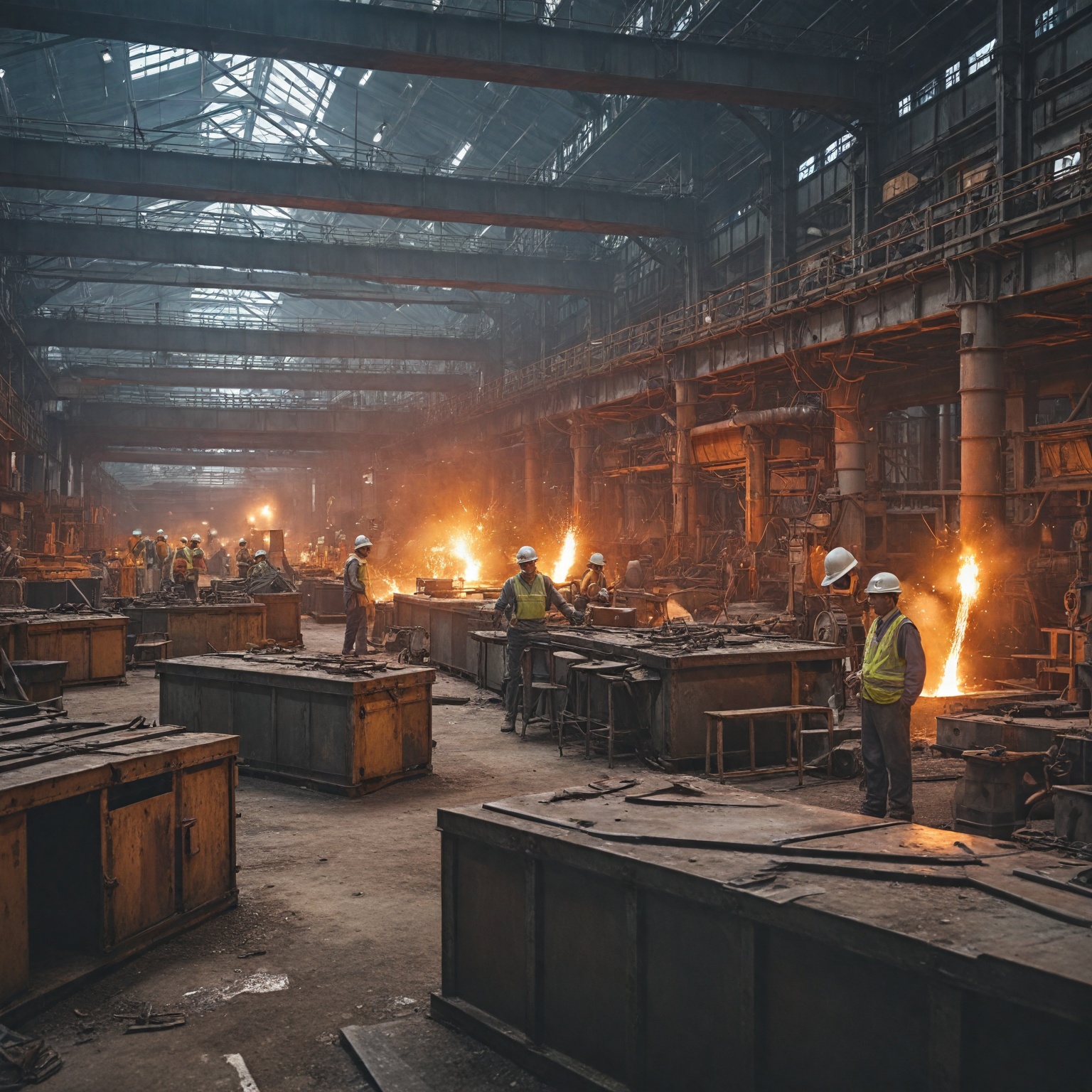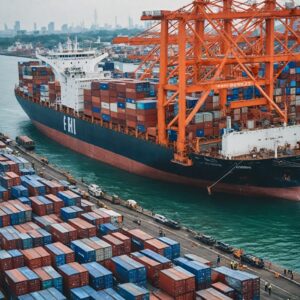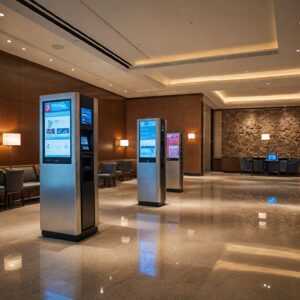Summary
JSW Steel, one of India’s largest steel producers, has faced significant challenges in meeting its ambitious expansion targets following a landmark Supreme Court ruling in May 2025 concerning its acquisition of Bhushan Power and Steel Limited (BPSL). The company’s strategic growth plan, which aimed to increase total production capacity to 37 million tonnes per annum (MTPA) by fiscal year 2026 and 51 MTPA by 2031-32, hinged critically on a 5 MTPA brownfield expansion project at BPSL. However, the Supreme Court declared JSW Steel’s resolution plan for BPSL “illegal,” ordering the liquidation of BPSL due to non-compliance with the Insolvency and Bankruptcy Code (IBC) and deficiencies in the resolution plan’s transparency and timely implementation.
The Court’s ruling overturned earlier approvals by the National Company Law Appellate Tribunal (NCLAT) and highlighted the flawed use of optionally convertible debentures instead of direct equity infusion, which failed to bring upfront funding as mandated under the IBC. This decision not only stalled JSW Steel’s acquisition process but also cast uncertainty over its ability to integrate BPSL’s assets and achieve its expansion roadmap, undermining investor confidence and the company’s premium market valuation. The ruling also triggered complex legal challenges involving investigations by the Enforcement Directorate into alleged bank fraud and money laundering linked to BPSL’s former promoters, further complicating JSW Steel’s operational and regulatory environment.
Despite these setbacks, JSW Steel continues to pursue growth through other initiatives, including commissioning new downstream facilities and investing in Industry 4.0 technologies to enhance efficiency and diversify its product portfolio. The company is also actively engaging with the judiciary and regulators to seek relief and clarify legal uncertainties, including petitions for immunity from ongoing investigations. Nonetheless, the protracted legal and procedural hurdles stemming from the BPSL case pose substantial risks to JSW Steel’s expansion ambitions in the near to medium term.
This case underscores the challenges Indian corporates face in navigating insolvency resolutions within a complex regulatory framework, especially when intertwined with allegations of financial irregularities. The Supreme Court’s decision not only impacts JSW Steel’s strategic trajectory but also sets a precedent emphasizing strict compliance with insolvency norms, transparency, and timely execution of resolution plans under the IBC.
Background
JSW Steel, one of India’s leading steel producers, has been actively pursuing capacity expansion to strengthen its market position. The company’s strategic growth plans include increasing its total production capacity to 37 million tonnes per annum (MTPA) by fiscal year 2026 and further expanding to 51 MTPA by 2031-32, reflecting a compounded annual growth rate (CAGR) of 10 percent. A significant part of this expansion involves brownfield projects, including a 5 MTPA brownfield expansion at Bhushan Power and Steel Ltd (BPSL), which more than doubles BPSL’s current capacity and plays a crucial role in JSW Steel’s overall growth strategy.
JSW Steel has also been investing in downstream capacity enhancement, such as commissioning a 0.25 MTPA colour-coated line at Rajpura, Punjab, in May 2023, and setting up a 0.12 MTPA colour-coated facility in Jammu and Kashmir, expected to be operational in fiscal year 2023-24. These initiatives are part of the company’s broader effort to diversify its product portfolio, which includes hot-rolled, cold-rolled, coated, colour-coated, tinplate, alloy steel, and electrical steel products.
The acquisition of Bhushan Power and Steel Ltd forms a central pillar in JSW Steel’s expansion blueprint. JSW Steel’s resolution plan involved a total payment of ₹19,700 crore to acquire BPSL, with ₹19,350 crore allocated to financial creditors and ₹350 crore to operational creditors, against claims amounting to ₹733 crore. However, the acquisition has faced legal hurdles. The Supreme Court of India’s recent ruling has stalled the acquisition process, thereby impacting JSW Steel’s strategic growth plans in the steel sector. Prior to the apex court’s decision, the case had been listed for hearing but was not taken up due to a sudden pruning of the list by the Registrar. JSW Steel has sought relief from the National Company Law Appellate Tribunal (NCLAT) for immunity from investigations into the BPSL promoter, Sanjay Singal, following approval by the National Company Law Tribunal (NCLT).
Despite these challenges, JSW Steel continues to maintain a premium valuation in the market, trading at 13 times EV/EBITDA, higher than the industry range of 6-8 times, largely supported by its ambitious capacity expansion plans. However, the ongoing legal proceedings and the uncertain status of the BPSL acquisition present significant risks to achieving these expansion targets in the near term.
Supreme Court Ruling on BPSL
The Supreme Court of India delivered a landmark judgment on 2 May 2025, declaring the resolution plan submitted by JSW Steel Limited for Bhushan Power & Steel Limited (BPSL) as “illegal” and ordering the liquidation of BPSL, four years after the acquisition under the Insolvency and Bankruptcy Code (IBC). This ruling overturned earlier approvals by the National Company Law Appellate Tribunal (NCLAT) and followed prolonged legal challenges, including objections from the Enforcement Directorate (ED) over a ₹47,204 crore bank fraud and money laundering case involving BPSL and its former leadership.
The Court’s decision was based primarily on the finding that the resolution plan was legally non-compliant, lacked transparency, and failed to ensure timely implementation. A critical point of contention was the use of optionally convertible debentures rather than a direct equity infusion, which did not bring funds upfront as required, thereby violating the principles of fair and timely resolution under the IBC. The Court further noted that JSW Steel had wilfully contravened and failed to comply with the resolution plan for two years, frustrating the IBC’s objectives and vitiating the insolvency process for BPSL.
Following the judgment, the Supreme Court directed all parties involved to file additional documents and affidavits within two weeks and allowed non-applicants to respond to JSW Steel’s interlocutory application seeking clarification on the ruling. JSW Steel issued a statement indicating that it had implemented the resolution plan as approved and believed it had a strong case on merits, pending receipt and review of the formal judgment.
Legal experts have highlighted the complexities arising from the ruling, including the maintainability of Section 32A of the IBC, which provides immunity to corporate debtors for offences committed prior to insolvency proceedings, and its interplay with the Prevention of Money Laundering Act (PMLA). The ongoing legal ambiguity raises concerns over the commercial viability of the resolution plan and the fairness of forcing JSW Steel to make payments before these issues are resolved.
The Supreme Court’s order effectively paves the way for BPSL’s liquidation, casting uncertainty over the company’s employees, creditors, and potential acquirers, and posing significant challenges for JSW Steel as it seeks to meet its expansion targets amid this protracted legal battle.
Impact of the Supreme Court Ruling on JSW Steel’s Expansion
The Supreme Court’s verdict on May 2, 2025, striking down JSW Steel’s ₹19,700-crore resolution plan for Bhushan Power and Steel Ltd (BPSL) has significantly impacted JSW Steel’s strategic growth trajectory in the steel sector. The apex court ordered the liquidation of BPSL, citing two primary reasons: JSW Steel’s use of a combination of equity and optionally convertible debentures (OCDs) for the takeover instead of a solely equity-based acquisition, and the failure to implement the resolution plan within the legally mandated timeframe under the insolvency law.
This ruling has stalled JSW Steel’s ambitious expansion plans centered around BPSL, which included increasing the company’s capacity from 2.75 million tonnes (mt) at the time of acquisition to 4.5 mt, and a crucial 5 million tonnes per annum (MTPA) brownfield expansion project aimed at more than doubling current production levels. The court’s decision creates a significant overhang on JSW Steel’s growth targets, undermining the higher valuation multiples the company had been enjoying based on its expansion outlook.
Furthermore, the ruling has created uncertainty around the complete transfer of BPSL’s assets to JSW Steel on a clean slate, as originally assured under the Insolvency and Bankruptcy Code (IBC), nearly three years after the acquisition. JSW Steel had already made considerable investments in expanding BPSL’s capacity, and the liquidation order now threatens to disrupt the company’s ability to capitalize on these investments.
The resolution plan’s rejection also sparked concerns from various stakeholders, including former promoter Sanjay Singhal, who argued that the EBITDA of approximately ₹3,000 crore generated during the insolvency period would unfairly benefit JSW Steel at the expense of lenders who had supported BPSL as a going concern. Morgan Stanley described the Supreme Court’s ruling as “materially negative,” highlighting BPSL’s pivotal role in JSW Steel’s growth strategy.
JSW Steel expressed its intention to review the formal court order with legal advisors to determine the next steps following the setback. Meanwhile, the legal proceedings have cast a shadow over JSW Steel’s plans and raise questions about the future trajectory of its expansion in the steel industry.
Legal and Regulatory Challenges Post-Ruling
The Supreme Court of India, on 2 May 2025, rejected the resolution plan submitted by JSW Steel for Bhushan Power & Steel Limited (BPSL), which had earlier been approved by the National Company Law Appellate Tribunal (NCLAT). JSW Steel stated that it had yet to receive the formal copy of the order to understand the detailed grounds for rejection and its implications, and would consult legal advisors before deciding on further action.
The apex court found the resolution plan legally non-compliant and lacking in transparency, particularly criticizing the use of optionally convertible debentures instead of direct equity infusion. This structure failed to ensure timely infusion of funds upfront, a crucial requirement under the Insolvency and Bankruptcy Code (IBC). As a result, the court ruled that the plan could not be sustained and emphasized adherence to the core principles of transparency, fairness, and timely execution under the IBC. A bench comprising Justices Bela M Trivedi and Satish Chandra Sharma held that the Committee of Creditors (CoC) erred in accepting JSW Steel’s plan, rendering it illegal under the IBC framework.
The decision effectively stalled JSW Steel’s acquisition of BPSL, disrupting the company’s strategic growth plans in the steel sector and creating uncertainty for BPSL’s employees, creditors, and potential buyers. Additionally, the Supreme Court’s rejection did not address outstanding claims by the State of Odisha regarding electricity and tax dues, disposing of the state’s appeal without comment.
The legal challenges surrounding BPSL have been complex and protracted. Earlier in 2025, the Delhi High Court had quashed money laundering proceedings against BPSL, offering some respite. However, the Enforcement Directorate (ED) subsequently challenged NCLAT’s authority to grant immunity to JSW Steel from investigations under the Prevention of Money Laundering Act (PMLA). The Supreme Court expressed particular concern over NCLAT’s jurisdiction in PMLA matters. After the NCLT approved JSW’s resolution plan in September 2019, the ED provisionally attached BPSL’s assets in October 2019. Despite NCLAT’s final approval and grant of immunity in February 2020, petitions against that order led the Supreme Court to allow implementation of the plan on a conditional basis, pending the outcome of legal challenges.
Procedural Hurdles and Their Influence on Expansion Timeline
The expansion plans of JSW Steel, which include increasing total capacity to 37 million tonnes per annum (MTPA) by FY26 and further to 51 MTPA by FY31-32, have faced significant procedural hurdles related to the resolution of Bhushan Power and Steel Ltd (BPSL). A critical component of this expansion is a 5 MTPA brownfield project at BPSL, which would more than double its current capacity. However, the Supreme Court’s recent ruling directing the liquidation of BPSL has created an overhang on JSW Steel’s growth targets, putting the ambitious capacity increase under threat.
The protracted resolution process of BPSL has been marked by legal disputes and delays since it was flagged under the Insolvency and Bankruptcy Code (IBC) as one of the first cases identified by the Reserve Bank of India. Appeals were filed by various parties including operational creditors and former promoters, contributing to the drawn-out legal battle. Although the National Company Law Appellate Tribunal (NCLAT) initially approved JSW Steel’s resolution plan in 2020, granting immunity against investigations related to BPSL’s erstwhile promoters, the Enforcement Directorate’s concerns and subsequent Supreme Court petitions escalated the matter.
The Supreme Court critiqued the approved resolution plan for its lack of transparency and non-compliance with IBC principles, particularly noting the use of optionally convertible debentures instead of direct equity infusion. This financing approach failed to ensure timely fund infusion, undermining the legal and procedural robustness of the plan. Consequently, the Court ordered liquidation rather than allowing the plan’s execution, which dealt a severe blow to JSW Steel’s acquisition and expansion strategy.
The legal uncertainty has delayed the integration and operational scaling of BPSL’s assets within JSW Steel’s portfolio. While JSW Steel had sought extensions citing challenges such as the COVID-19 pandemic, the ultimate fate of the resolution plan hinges on the Supreme Court’s final ruling. Should the Court uphold liquidation, JSW Steel is expected to recoup its investment from the lenders but will lose control over the asset, directly impacting its capacity expansion roadmap.
Environmental and Social Regulatory Challenges
JSW Steel’s expansion plans, including the critical 5 MTPA brownfield expansion at Bhushan Power and Steel Ltd. (BPSL), face significant environmental and social regulatory hurdles that compound the legal complexities surrounding the acquisition and operation of BPSL. The protracted insolvency resolution process of BPSL, which began in 2017, has been marked not only by legal disputes but also by unresolved claims related to environmental clearances and social obligations.
One notable challenge involves compliance with state-level regulatory requirements, especially in Odisha, where BPSL’s operations are based. The Supreme Court’s decision did not address the State of Odisha’s claims regarding outstanding electricity dues and tax liabilities, which remain unresolved and could potentially delay or restrict the implementation of JSW Steel’s expansion plans. These dues are often intertwined with environmental and social compliance issues, such as ensuring sustainable resource usage and addressing community concerns.
Moreover, the implementation of Industry 4.0 technologies by JSW Steel to digitize and optimize production processes underscores the company’s focus on operational efficiency but also necessitates adherence to stringent environmental regulations governing emissions, waste management, and resource conservation across multiple regions. As JSW Steel attempts to increase its share of value-added products through state-of-the-art facilities, the company must balance growth ambitions with sustainable practices mandated by both central and state authorities.
The challenges extend to the automotive sector’s growing demand for steel driven by government scrappage policies and localization efforts. While these factors are expected to boost steel consumption, they simultaneously increase scrutiny from regulators on environmental impacts associated with expanded steel production, including pollution control and community health considerations.
JSW Steel’s resolution plan for BPSL also involves complexities related to corporate governance and compliance with multiple regulatory frameworks, including the Insolvency and Bankruptcy Code (IBC) and the Prevention of Money Laundering Act (PMLA), which influence the social legitimacy and operational viability of the expansion. Legal experts have highlighted concerns about the interplay between these laws and the potential social impact of the resolution process, emphasizing the need for transparent and equitable handling of stakeholder interests to maintain social license to operate.
JSW Steel’s Response and Strategic Adjustments
In response to the Supreme Court’s ruling that challenged the legality and transparency of its acquisition plan for Bhushan Power and Steel Limited (BPSL), JSW Steel has been compelled to reassess its strategic growth trajectory. Despite the
Future Outlook
JSW Steel’s expansion plans have encountered significant challenges following the Supreme Court’s ruling on the Bhushan Power and Steel Limited (BPSL) insolvency case. The decision has stalled the acquisition process, directly impacting JSW Steel’s strategic growth targets, particularly the planned 5 million tonnes per annum (MTPA) brownfield expansion at BPSL, which is intended to more than double current production capacity. This expansion is a crucial component of JSW Steel’s broader growth strategy and supports the company’s higher valuation multiple.
Despite these setbacks, JSW Steel remains committed to its interest in BPSL and aims to turnaround the operations within two years, contingent on the Supreme Court’s ruling on its petition seeking immunity from the Enforcement Directorate’s ongoing probe. The legal complexities stem from allegations linked to a ₹47,204 crore bank fraud and money laundering case involving BPSL and its former management, which has added layers of uncertainty to the resolution plan.
The Supreme Court has further directed all parties to submit additional documentation and affidavits, extending the timeline for resolution and leaving JSW Steel’s acquisition plans in limbo. This legal overhang poses a significant risk to the company’s ability to recoup the ₹19,350 crore investment made in acquiring BPSL and threatens to create a void in the event of liquidation.
Meanwhile, JSW Steel is progressing with other strategic initiatives to bolster its production and diversify its portfolio. The commissioning of the Hot Strip Mill facility by its wholly owned subsidiary, JSW Vijayanagar Metallics Limited, in March 2024 marks a significant milestone, with commercial production already underway and full commissioning of the integrated 5 MTPA facility expected by the second quarter of FY 2024-25. Additionally, the company is advancing its Industry 4.0 digitisation efforts across its steel plants and expects to commission downstream facilities in FY 2023-24, aiming to enhance operational efficiency and product innovation.

























